Meet the courageous kids doing Australia proud
These gutsy Aussie kids have not only faced the challenges of covid for the past couple of years - they have also been fighting for their lives.
National
Don't miss out on the headlines from National. Followed categories will be added to My News.
The last couple of years have been tough for everyone, but these children have had it especially hard.
Not only have they been battling for their lives, but they’ve been doing it through a pandemic.
Their stories also highlight the shocking statistics around child health.
The leading cause of death in children under 14 is injury through accidents.
Every year, around 68,000 kids under 14 end up in hospital with an injury.
One of them is Sofia Drapak, whose life changed in an instant after she was in a car accident, that killed her father.
Hailed a “hero” by her mum she is still undergoing gruelling treatment two years on.
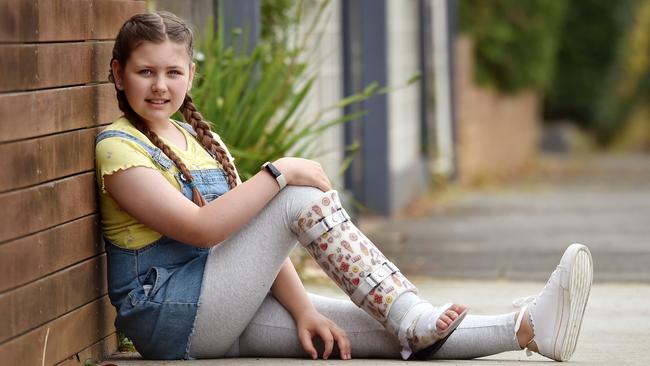
Today, we salute these Aussie children for their resilience and fortitude and for inspiring us all to do and be better.
Child and adolescent psychologist Dierdre Brandner said children are incredible at dealing with adversity and adults can learn something from them.
“I call some kids ‘Teflon children’ because nothing sticks to them,” she said.
“They are innately able to manage and cope.”
Ms Brandner advised parents not to project their fears or expectations on children going through tough times because it can impact their natural ability to overcome.
Ultimately, she said whatever the personality or temperament of these kids, they deserve to be recognised and admired.
SOFIA DRAPAK, MELBOURNE
A horrific car accident took the life of Sofia Drapak’s father and left her with devastating injuries.
Sofia, 11, broke her collarbone, suffered severe soft tissue damage to her elbow and lost 10cm of bone in her right leg after it was “minced” in the accident in February, 2020.
Doctors fought hard to save her leg and the bone has had to be regrown and set in a special brace. She has also undergone a number of skin grafts.

“She’s a hero for everyone to get motivated in life,” her proud mum Marina said.
Sofia was a dancer, gymnast and keen swimmer before the accident.
Since then, she has undergone more than 30 operations and has had to learn to walk again.
While she has been unable to do anything but walk short distances since her leg injury, she is hopeful for the future.
“Sofia is still the same funny, cheeky, gorgeous, active girl,” Marina said.
“Her dream is to be a swimming coach for the Olympic team.”
LARA YAROSLAVCEFF, ORANGE, NSW
Little Lara Yaroslavceff has already spent nine months in hospital, which is more than 230km away from her home in Orange, west of Sydney – and she has only just turned five.
After developing symptoms of fatigue and her skin colour turning “pale with a yellow tinge”, Lara was diagnosed with Acute Lymphoblastic Leukaemia in July 2021.
Her devastated parents Stacey and Matt said their whole life had been “turned upside down”.
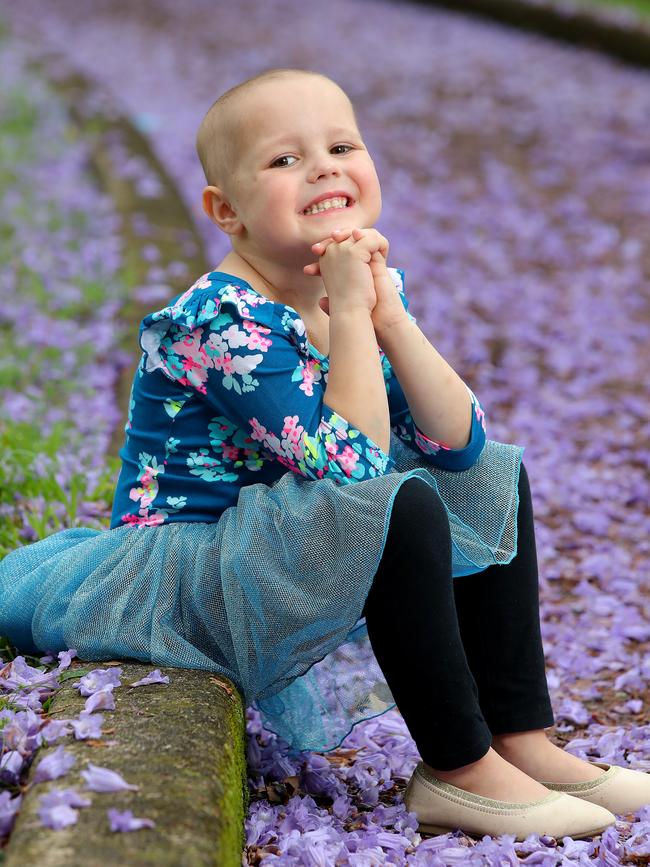
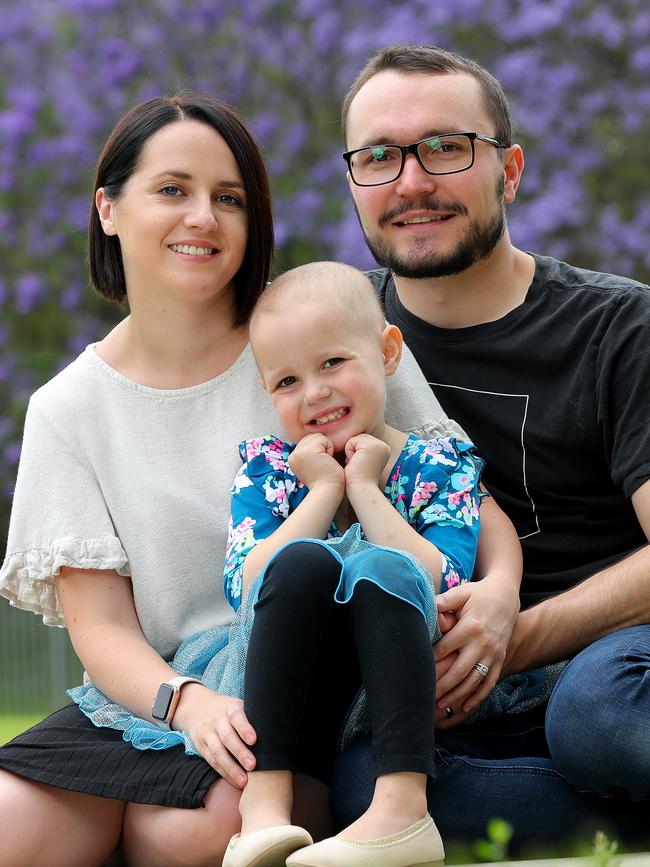
The couple called Ronald McDonald House in Western Sydney their home for 248 nights up until Lara’s discharge this week.
However, they will continue to return to Sydney for check-ups.
“I remember crying out to God not to take our daughter,” mum Stacey said.
But despite the family’s current situation, they are hopeful their daughter will be able to start kindergarten this year.
“She just amazes us with her resilience every day,” Stacey said.
“Cancer didn’t take our daughter. Cancer gave us a little girl that is braver, stronger, and more resilient.”
CHARLOTTE MOXON, REGENTS PARK, QLD
Baby Charlotte Moxon’s family know their daughter’s survival is a miracle.
The 15-month-old was diagnosed last year with ALCAPA syndrome, a rare but deadly heart condition which affects one in 300,000 babies.
Within weeks after Charlotte’s birth, her parents Emma and Reece noticed their baby “was very miserable”.
“She cried all the time, her weight kept dropping and she had minimal urine output,” mum Emma said.
“Charlotte’s heart was double the size it should be and she was suffering from cardiac failure.”

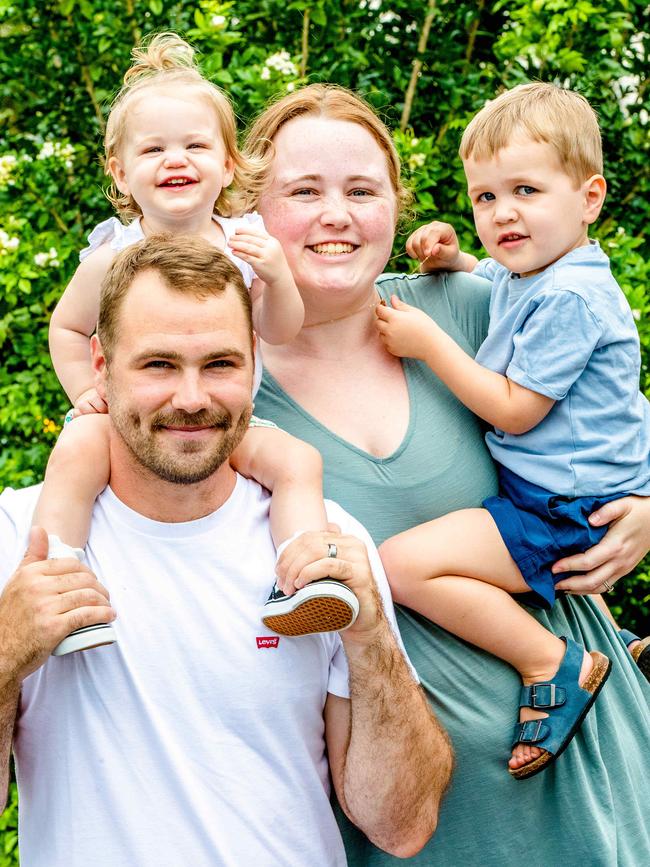
But lifesaving open heart surgery saved Charlotte’s life, and after 18 days at Queensland’s Children’s Hospital, she was able to return home.
“She has been through more in her first year of life than most people go through in their whole lives,” Emma said.
“Charlotte is the strongest person I know and I will remind her every day for the rest of her life how amazing she is.”
To help, click GoFundMe
ASHER DUKE, SA
Just 18 days after his birth, Asher Duke was diagnosed with a liver tumour.
His parents Sarah and Simon had been warned there may be an issue after something was picked up during a pregnancy scan.
“At our 38 week scan the sonography picked up a small mass the size of a pin prick above Asher’s right kidney,” dad Simon said.
Asher, who was born in October, had an ultrasound two weeks after his birth, which confirmed the tumour.
After many tests, the good news is that it appears to be benign.
“It’s been a rollercoaster,” Simon said.
“He will undergo regular tests and ultrasounds to see if the mass shrinks or becomes an issue for him. If he needs surgery the doctors have said he will have to wait until he’s 10 to have it.”
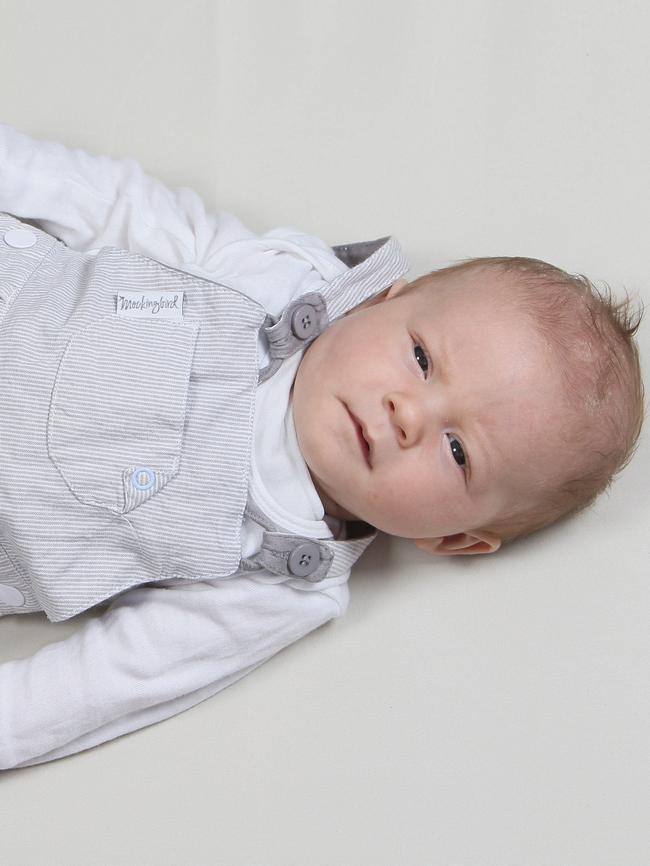
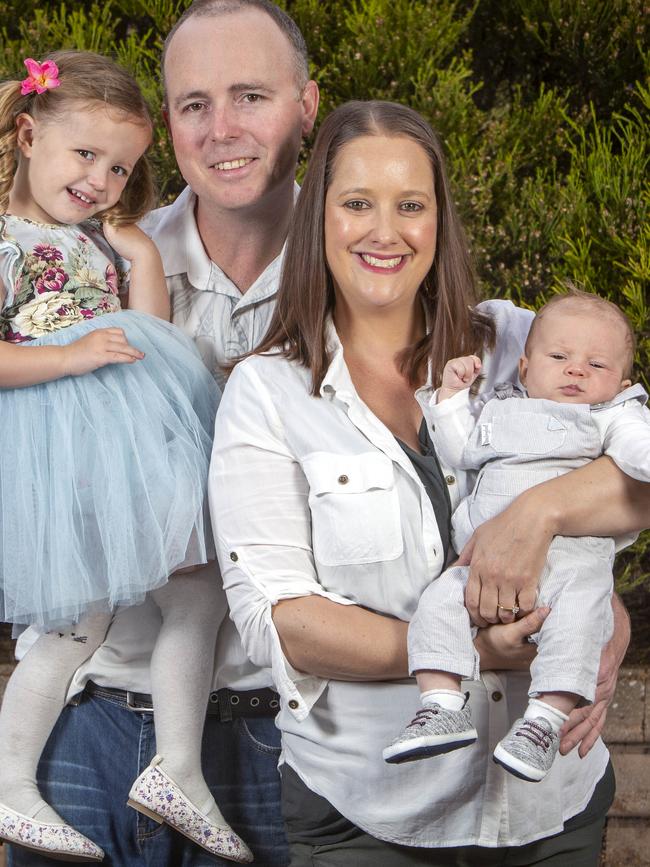
TOBY RIGBY, CYGNET, TASMANIA
Toby Rigby was diagnosed with aggressive pineoblastoma in December, just a few weeks after doctors discovered a tumour in his brain.
The three-year-old’s family were sent from their Tasmanian home to Melbourne to commence treatment, right on the eve of Christmas.
It is expected to last for about seven months.
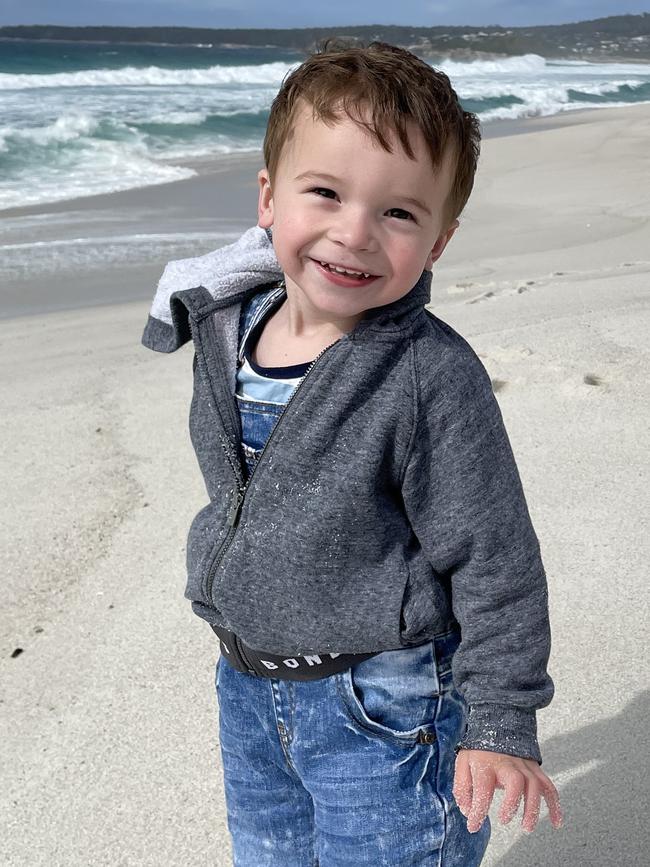

“Doctors are still determining the area in which the radiation will need to be delivered,” mum Demi said.
“We are told that it is unlikely to be done in Australia … so we are likely to be travelling overseas to receive this treatment after he finishes his chemotherapy rounds.”
But Toby is facing cancer head on with a smile, despite the pain his mother said he was going through.
“Not once has he stopped smiling, singing songs, and just getting on with being himself no matter the limitations,” she said.
To help, click GoFundMe
ELI GREEN, BOGAN GATE, NSW
Eli Green has shown bravery and maturity beyond his years.
At the age of three, he was diagnosed with leukaemia and was sent to a hospital in Sydney — nearly 400km away from home in Bogan Gate in central-western NSW.
His parents Bobbi-Jo and Robert said the now seven year old was thriving, after spending 240 nights at the Ronald McDonald House in 2019 while undergoing treatment.
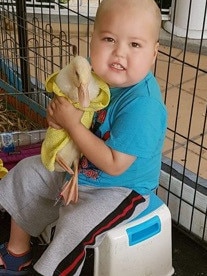
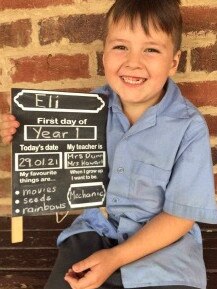
“I remember being at the petrol station and getting a phone call asking us to pack some bags as Eli will need to go to Sydney,” Bobbi-Jo said.
“The only signs that anything was wrong was a fever and he was pale.”
The family of seven said Eli’s cancer journey was “a rollercoaster”, which saw him suffer hair loss as he endured eight months of treatment and a further 18 months of maintenance therapies.
“It was a struggle for our family to be apart,” Bobbi-Jo said.
“We still have bimonthly bloods and see a doctor every second month.
EMILY LEVER, HIGHETT, VIC
If Emily Lever gets too excited it can trigger a dangerous seizure.
The 13-year-old was diagnosed with Dravet Syndrome, a rare form of epilepsy, when she was five.
Doctors said her seizures were so dangerous she may not make her sixth birthday.
The epilepsy can be triggered by a number of bizarre and sometimes hard to foresee events, including changing weather conditions and temperatures.


While Emily has surprised doctors by being able to manage the epilepsy, she suffered another health setback when at age 11 she was diagnosed with Acute Lymphoblastic Leukemia, making her the only person in the world to have both conditions.
Her parents Lauren and Darren Lever said their daughter is “exceptionally brave and resilient”, coping with more than two years of cancer treatment, including more than 120 days in hospital.
Emily —who was connected with the Starlight Foundation — has finished the chemotherapy, but has a high risk for relapse due to Dravet Syndrome.
She is currently back at school, in the Melbourne suburb of Highett, enjoying spending time with friends and doing things other kids take for granted.
OLLIE MASON, NEWCASTLE, NSW
Ollie Mason is a bubbly, friendly, crazy toddler who loves making a mess and annoying his sister.
But mum Michelle doesn’t mind that the two and a half year old tears the place up after what he has been through in the last year.
In November 2020, Ollie was diagnosed with brain cancer.
Luckily, his surgeon was able to successfully remove the 6cm by 5cm tumour after a six-and-a-half-hour operation.
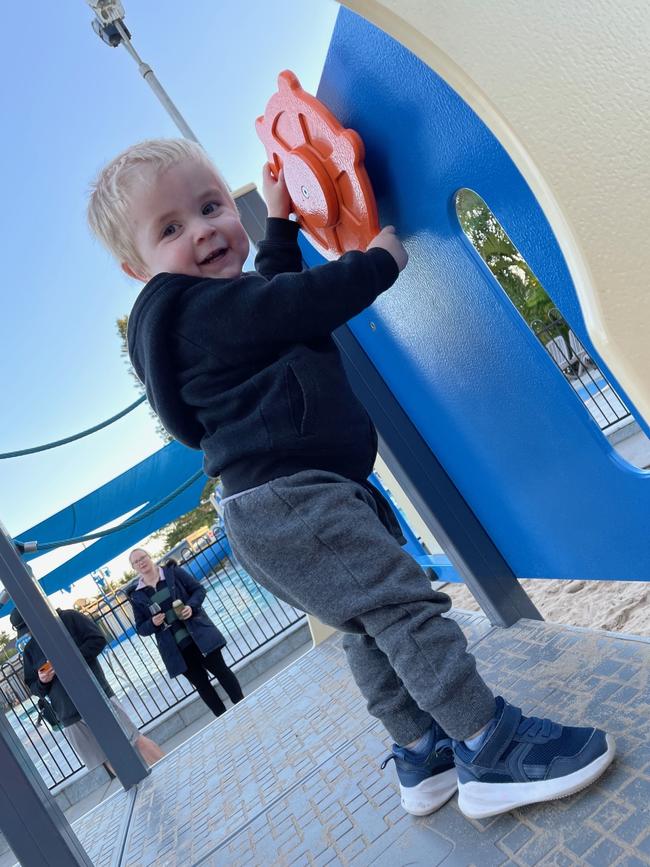
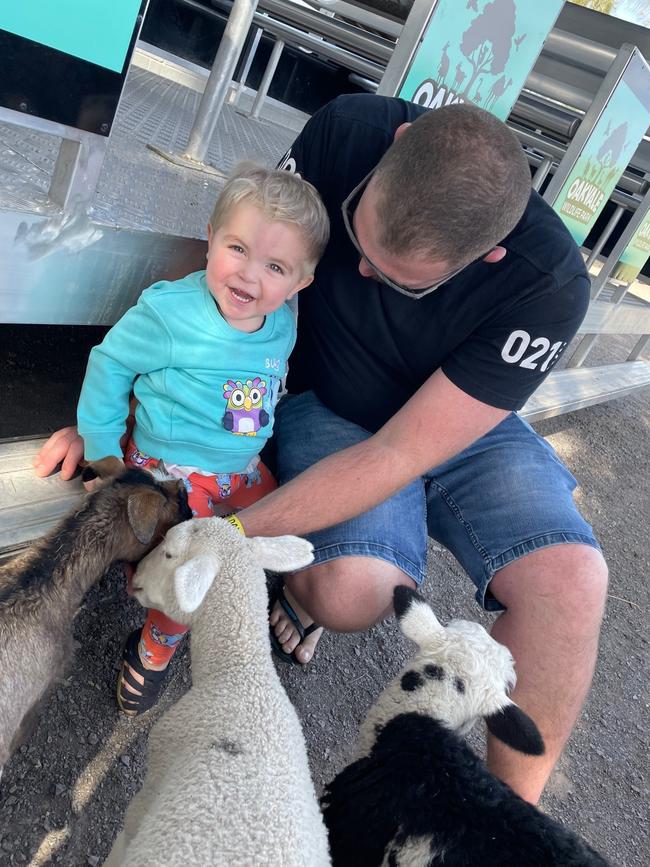
He suffered a few setbacks in his recovery, including an infection and several seizures.
But after his second birthday the family received good news — the cancer was gone.
“He’s achieved a lot,” Michelle said. “You wouldn’t even know what he’s been through.”
His family, who live in Newcastle, north of Sydney, is not sure what the future holds for Ollie.
He has been told he may need steroids to enhance his growth as he gets older.
And, in a bitter blow, the cancer will most likely return when he is aged between five and six.
SAM RUDDELL, WARNER, QLD
Sam Ruddell is learning to adjust to his new life in a wheelchair — but at the tender age of six, he already has his eyes set on the 2032 paralympics.
In 2017, the Ruddell family’s world fell apart when he was diagnosed with the rare genetic disorder spinal muscular atrophy at 20 months old.
The disease causes children to gradually lose the ability to move, swallow and breathe.
“When you learn that your child has a condition that is deemed incurable there is a complete sense of powerlessness,” mum Gillie said.
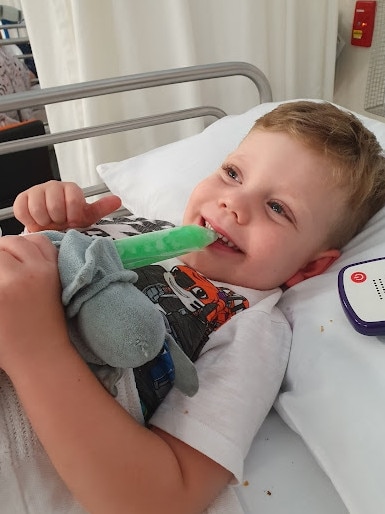
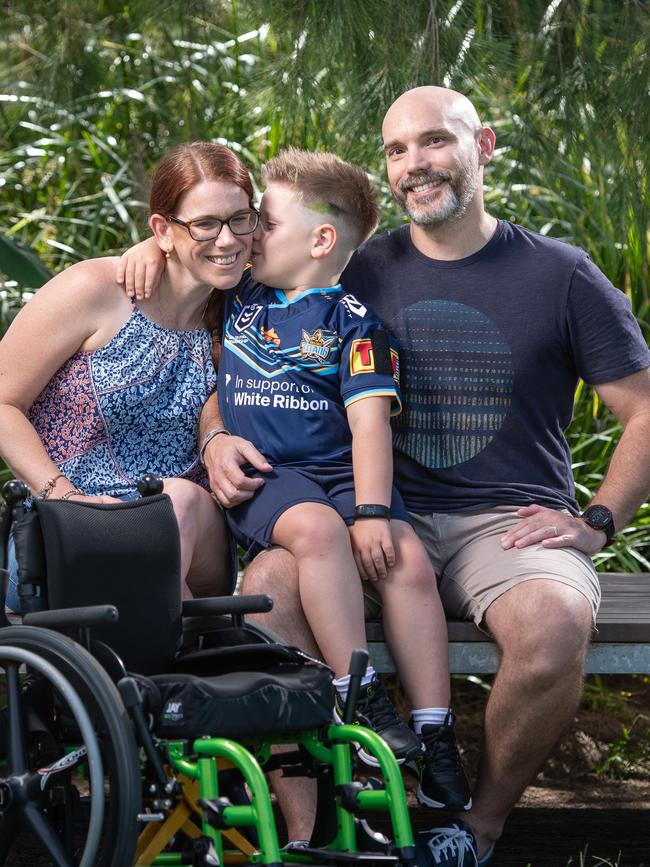
But despite his diagnosis, Sam’s positive outlook and new-found love for wheelchair rugby has seen him raise money to fund six junior wheelchairs worth $3000 each.
And he hopes to continue raising more to buy a fleet of junior sports wheelchairs.
“Sam is the most resilient young person I’ve ever met; he is the epitome of bravery and is a force to be reckoned with,” Gillie said.
“He does not let his disability define him.”
To help, click GoFundMe
PATRICK BENNETT, MOLONG, NSW
Patrick Bennett is a little fighter.
He survived his mother’s pregnancy, when doctors feared he might not, after they diagnosed him with a back-to-front heart at the 20-week ultrasound.
As well as having Congenitally Corrected Transposition of the Great Artery, he had several holes in his heart.
At just 10 days of age his parents Aaron and Loren noticed he was going blue around his mouth and doctors swiftly performed open heart surgery.
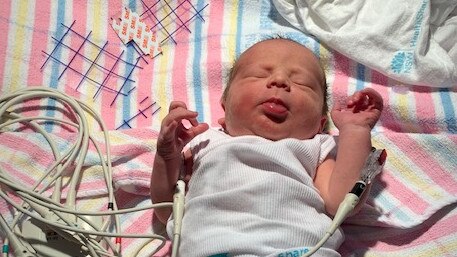
“I remember handing him over and taking him back off the surgical team three times to give him one more kiss and cuddle and tell him I love him in case it was the last time I got to,” Loren said.
After the surgery, Loren recalls how her son was covered in “tubes and lines” while he was on a ventilator.
“He wasn’t yet strong enough to breathe on his own and was so swollen he was nearly unrecognisable,” she said.
Then at the age of one, Patrick was back in hospital for a complex 16-hour operation to correct his heart defects.
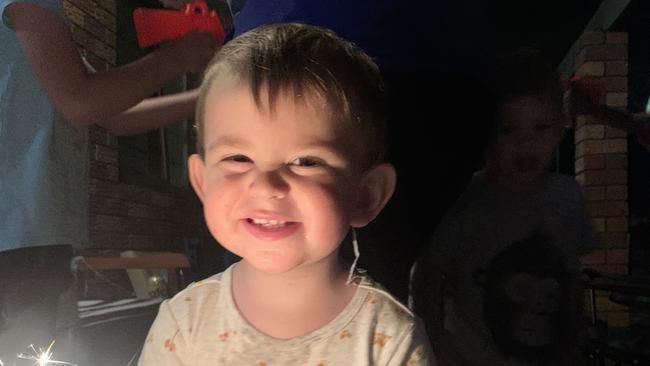
Now back home, in Molong, four hours from Sydney, his mum said she has been inspired by Patrick’s “strength, courage and determination” and the specialists have been amazed by his progress.
“But he has changed my life and inspires me to be strong,” she said. “He may have a broken heart but he is full of so much love already.”
To help, click GoFundMe
WALLY REECE, ADELAIDE, SA
Baby Wally Reece not only missed out on celebrating Christmas and the New Year with his mum Carol, but the arrival of his new baby sister Lilly in January.
Instead, the 16-month-old was receiving radiation treatment in the US, accompanied by his dad Daniel, after doctors found a rare and aggressive cancer growing directly behind his left eye in July.
The father and son stayed at the Ronald McDonald House in Florida.
“He was diagnosed with stage 3 of rhabdomyosarcoma and was started on intensive chemotherapy that night,” Daniel said.
He then went to the US for proton therapy which is not available in Australia yet.
While the cost of proton therapy, which delivers radiation directly and painlessly straight into tumours with minimal injury to surrounding organs, has been covered, the family have had to pay for medication, living expenses and travel.
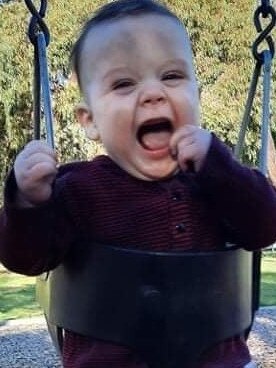
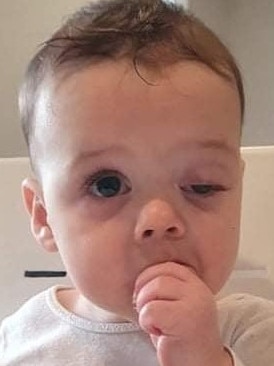
Daniel, who also missed the birth of his daughter, said he felt proud of his son’s “strength and bravery”.
Carol said Wally was due to complete his intensive chemotherapy in May and if all well, would go onto have maintenance chemotherapy until October.
To help, click GoFundMe
LIAM EWART, ENDEAVOUR HILLS, VIC
At the age of two, Liam Ewart is facing a battle no parent wants their child to endure.
Born with two collapsed lungs and diagnosed with asthma at six months of age, nothing could prepare his mum Michelle for what lay ahead.
As Victoria battled the second wave of the pandemic in October, Liam was rushed to the emergency room at Monash Children’s hospital after his weight rapidly declined.
Now, he is fighting Stage 3 high-risk neuroblastoma.
“He wasn’t his normal full-of-beans energetic self,” she said of his original symptoms.
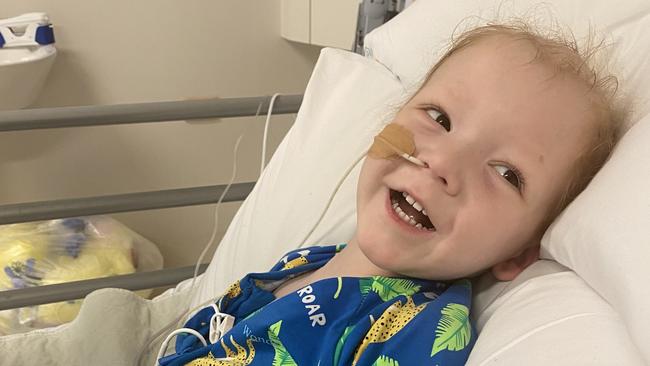
“The very next day I got told the most devastating news and those words no parent wants to hear.
“I was told the tumour is so big (two kilograms) it went from his hip bone up to his chest bone squishing his left kidney and lung in the meantime.”
After doctors removed the tumour, Liam’s condition turned critical.
But the two year old pulled through, spending a further two months in hospital.
“We are currently doing round three of chemotherapy and getting ready to be transferred over to another hospital for stem cell harvesting,” Michelle said.
“He’s a tough little cookie and takes it like the little trooper that he is. He walks in to his appointments and says to all nurses and doctors ‘I’m strong, I can do this’.”
To help, click GoFundMe
MADILYN CHAPMAN, GOULBURN, NSW
After Madilyn Chapman was diagnosed with Acute Lymphoblastic Leukaemia, aged four, she spent months in hospital in Sydney, 200km from her home in Goulburn and her three older siblings.
Mum Alison Chapman said her “bubbly” and “switched-on” daughter underwent intense treatment for five months and then travelled back and forth for 18 months for three to seven days at a time. Now they only have to do it every three months.
At home in rural NSW, Madilyn, now aged 7, loves horses and riding her bike.

But because her immunity is lower than other children, the family have had to be ultra cautious about mixing with people, especially because of Covid.
Madilyn —who was connected with the Starlight Foundation — also has to miss school if other children are sick, just to be on the safe side.
Alison said Madilyn was “brave, strong headed, and feisty” and while she doesn’t wish illness on any of her children, if one of her children had to be sick Madilyn was the one who could cope with it best.
She added three years on from her shocking diagnosis, the family “never let their guard down and are never fully at ease”.
“Madilyn is living life normally but just has to be careful,” she said.
TATE SALES, FRANKSTON, VIC
It started with a sore right wrist, then a sore left wrist, before the strange feeling spread through seven-year-old Tate Sales’ little body and his legs collapsed beneath him.
Within the space of four hours he was completely paralysed.
The “adventurous, fun-loving, physically strong, very active” boy, who had dreams of becoming a Ninja Warrior, was rushed to hospital where he lost consciousness and needed to be put in an induced coma.
His family later discovered he had suffered a Fibrocartilaginous Embolism – otherwise known as a spinal cord stroke.
Tate is now a tetraplegic/quadriplegic. He will never walk again.

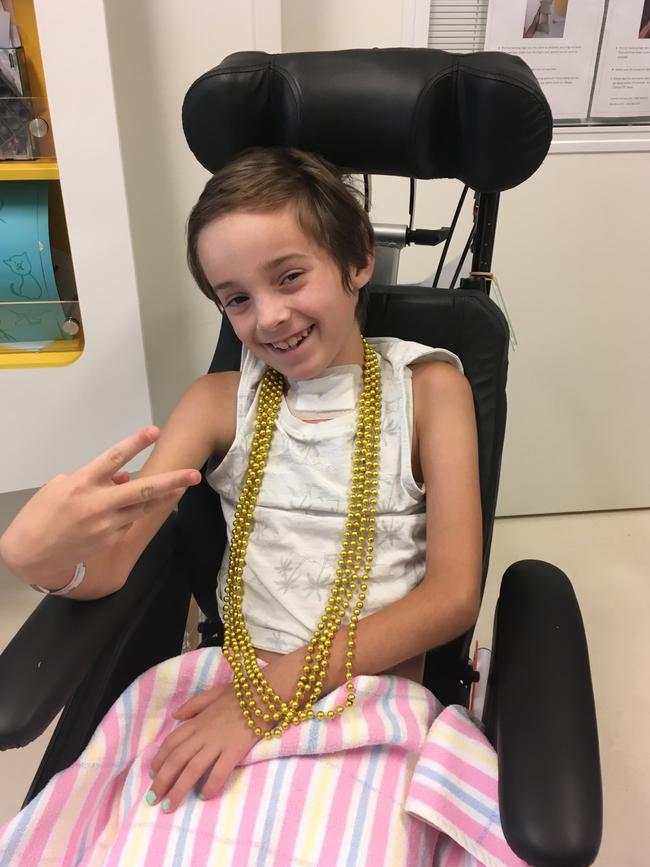
During his six-month hospital stay Tate suffered a mental breakdown and at one point lost the will to live. He has since been medicated to support his mental health while receiving ongoing therapy.
Tate is also in constant pain. He can feel his limbs, he is just unable to use them.
“His level of resilience, perseverance and courage during all of the medical procedures, throughout the painful and exhausting therapies and the hard times he had faced mentally, my beautiful boy has not given up no matter how hard it has been for him,” his mum Melinda said.
She said he had not once complained about what his life is going to look like and “has taken what has happened in his stride”.
He has also returned to school in Melbourne and is “very much not letting him be in a wheelchair stop him from doing things or even giving things a go”.
“To say I am a proud mother is such an understatement. He really is my inspiration.”
To help, click GoFundMe
LUELLA OUDSHOORN, MATRAVILLE, NSW
Two-year-old Luella Oudshoorn can suffer more than 250 seizures a day. She has Infantile Spasms — a rare and catastrophic form of epilepsy.
The past 18 months have been spent in hospitals, undergoing tests and dealing with the horrific side effects of the medication.
But despite all this, parents Erin and Dave – who are expecting their second child in June – say their little Luella is the “most beautiful girl”.
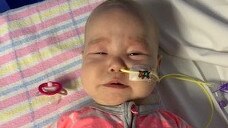
“I first noticed a strange ’crunch’ type of movement she was doing at 11 weeks old, but it was so small and fast I put it down to some involuntary movement babies can make at that age,” Erin said.
“But deep down I knew something wasn’t right.”
Luella is currently unable to walk, independently stand, properly crawl or independently feed herself and is non verbal. Her mother describes the journey as “nothing short of horrific”.
“Doctors are suggesting what’s called a hemispherectomy, where they would remove the entire left hemisphere of her brain in an attempt for seizure control,” she said.
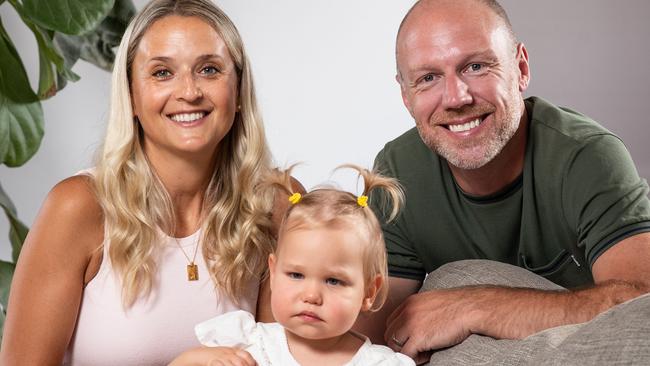
“The surgery is a one-time shot, we can’t go back and try again.”
And in the midst of one of the toughest battles any two year old will face, Erin said Luella had shown courage beyond her years.
“Take the epilepsy away and her soul is the most kind, loving, tender, light filled, radiant and beautiful that I have ever encountered in another human being,” she said.
“I’m beyond proud of her and admire her strength.”
To help, click GoFundMe
WILLIAM MCLENNAN, KARABAR, NSW
Little William McLennan hasn’t let his illness stop him from doing what he loves.
At the age of two, he was diagnosed with the rare genetic disorder Spinal Muscular Atrophy Type 2.
The paediatric disorder, similar to adult motor neurone disease, affects one in every 10,000 births and causes children to gradually lose the ability to move, swallow and breathe.
Mum Naomi Taylor said the diagnosis was devastating for the family as they tried to comprehend what his future would look like.
“There were no symptoms noticed when he was born, but we noticed things happening as he grew older,” she said.
“He began crawling at 12 months, but just before age two he regressed in crawling and this is when we saw the red flags and thought something was wrong.”
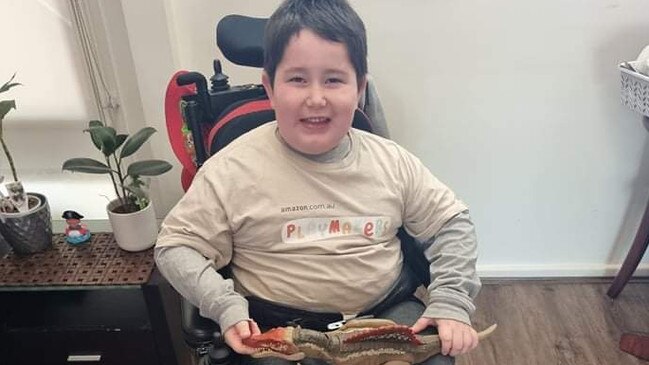
With limited treatment options, the family successfully advocated for the government to approve a lifesaving drug for children under 18, which slows the progression of the disease.
Now, the six year old travels from Karabar, near Queanbeyan, NSW, to Sydney where he receives treatment every four months.
“William can live a life very similar to other six year olds. He is able to go to school and participate in wheelchair sports, and he doesn’t let his illness stop him from doing what he loves,” Naomi said.
“He is a cheeky, happy child who loves being with people and is incredibly resilient despite everything he goes through.”
HARRY NILSSON, DECEPTION BAY, QLD
Harry Nilsson has defied medical odds – and he hasn’t even reached one.
His parents Hannah and Ryan said their 11-month-old had proved “he’s a fighter”, despite what he had been through.
“It was when shortly after giving birth the midwife had noticed some rare abnormalities to Harry’s belly and groin area,” the mother of two said.
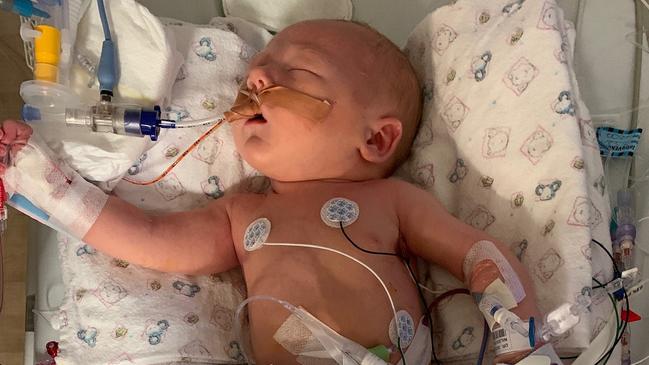
“The midwife had noted she had not seen anything like it before in her career.”
But after multiple visits to intensive care wards, Harry was diagnosed with Bladder exstrophy and epispadias – a rare birth defect that means the organ that usually sits inside the pelvis, is exposed.
His first surgery to repair his bladder and pelvic bone took place when he was just four days old.
“Harry is crawling like any other bub,” Hannah said.
“Amongst everything he has gone through he is a … strong boy.”
Harry will still need more surgeries and physiotherapy, along with daily medication and frequent hospital check ups.
However, Hannah is confident her son will “lead a fulfilled happy life like any other”.


